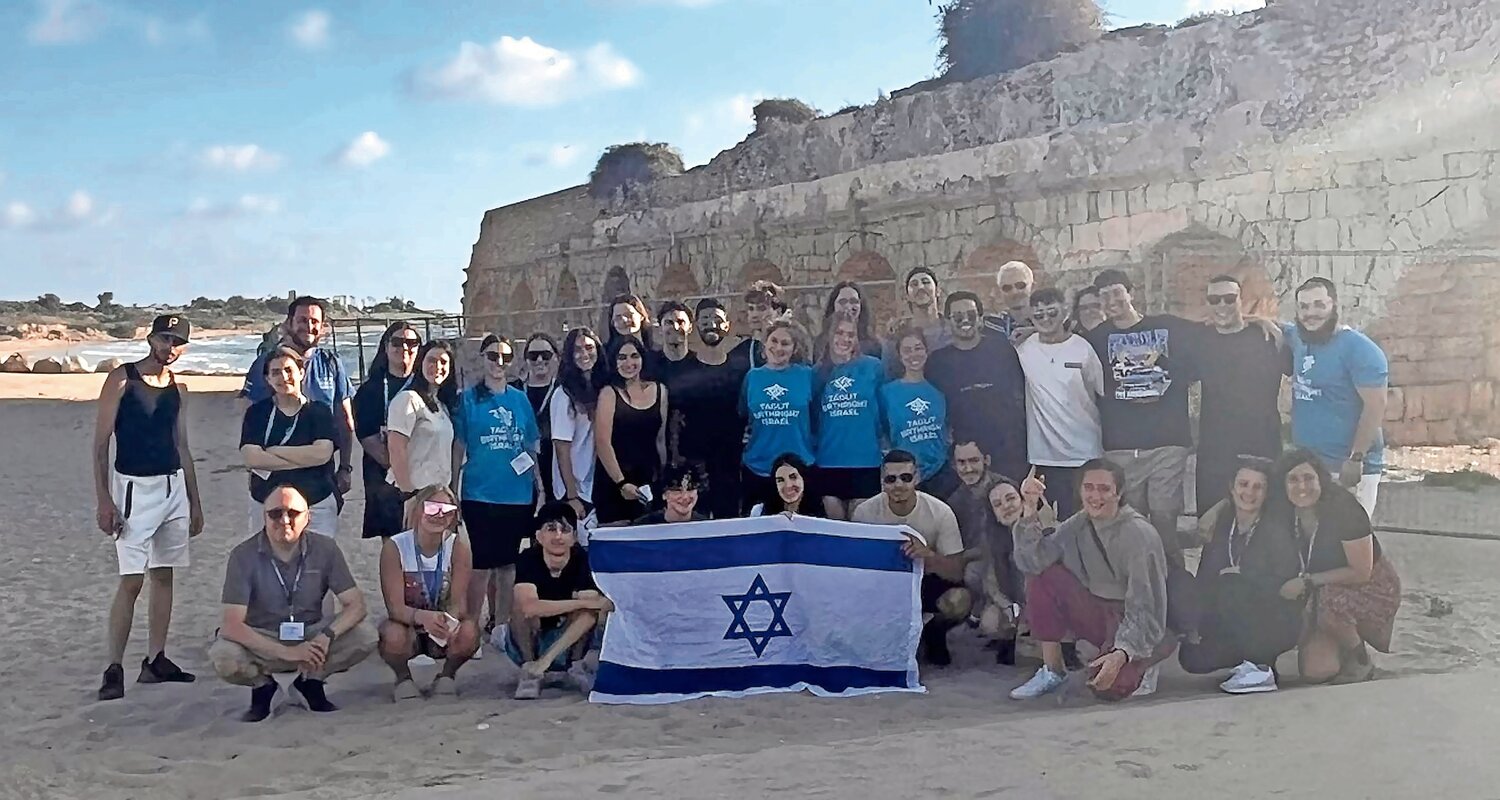Birthright’s back, and I took the trip
Birthright Israel is back after a post-Oct. 7 hiatus, trying to find meaning in a nation at war.
Last month, I spent ten days on a Birthright trip with 31 other American Jews ages 18 to 21. The trips, which cost Birthright an estimated $4,500 each, are free; donors and the Israeli government cover the organization’s $172 million budget.
We stayed in a variety of accommodations from a kibbutz to a five-star hotel, ate at upscale restaurants and visited parks and museums. Meanwhile, the war in Gaza raged and rockets flew over northern Israel.
This was the first trip since Oct. 7 for Yitzi Glickman, who’s been a group leader on over a dozen Birthright trips. Unlike previous trips, we were not allowed within 12 miles of the northern border with Lebanon. This meant that we could not go to Glickman’s favorite city, Tzfat.
“That’s normally our second day,” he said. “It gives everyone a chance to bond and to experience art, music and Rabbinic mysticism.”
Instead, we volunteered at a raspberry farm in the Golan Heights. Many of the farm workers were at war. That same day, Hezbollah sent over 200 rockets into northern Israel, including Tzfat.
Glickman was one of three group leaders on our trip, along with a security guard/medic and a bus driver.
• • •
At the Kinneret we met Israelis our age who joined us on the Birthright program for four days. In normal times, they would have been there as honorary tourists tasked with teaching the foreigners about life in Israel. These are not normal times.
The war scarred each of them personally.
Together we visited the courtyard in front of the Tel Aviv Museum of Art that’s now known as Hostage Square. At the start of the war, a setting designated for each hostage was placed on a long table every Friday night. It was hoped that they would be able to use it soon. But over the months, the tablecloth became drab, torn and gray, as if hope was under siege.
While there, we met with a hostage family member, Efrat Machikawa, who had five members of their family taken hostage from Kibbutz Nir Oz; four were released. Machikawa told us about her uncle, Gadi Moses, age 79, who is still being held captive in Gaza.
With a clenched fist, she said, “We could have brought back our hostages three times … but instead of bringing birth to life, we are bringing birth to more death, and it is the responsibility of our government to bring them back.”
After that, with many of us in tears, we gathered around a piano and sang Jewish songs. We finally felt the pain tucked behind the veil of normality.
• • •
The itinerary wasn’t the only thing that changed. According to Glickman, Birthright now attracts a smaller and different crowd.
“We used to always have full 40 person groups but our trip of 32 was one of the largest this year,” he said.
“Before the war, some visitors were ambivalent or even anti-Zionist, but now I’ve seen a much stronger sensitivity towards Zionism. … They’re coming in bonded in a kind of way because of their shared Zionist feelings.”
Since its inception in 1999, Birthright required groups to attend a lecture on Israel’s geo-politics. Our speaker, Charlotte Korchak, distilled centuries of emotionally fraught history into a two-hour lecture.
Korchak, International Senior Educator at Stand With Us, began by acknowledging “the sensitivity of the topic,” but warned that she would “tell the whole story, not just our side.” As she predicted, some people were uncomfortable. Some played on their phones or whispered jokes, or skipped the lecture altogether, but the majority of the room followed the presentation eagerly.
Korchak was raised in Israel. When she was 14, a suicide bomber killed three of her friends. “That was my introduction. I developed a lot of feelings based only on emotion.” She concluded, to those who were willing to listen, that “the past 8 months have shown us [emotions] can be very dangerous.”
Early the next morning, we went to Yad Vashem – The World Holocaust Remembrance Center. Many in our group lost family in the Holocaust. My grandfather survived, but he lost most of his family and sadly passed away in 2023. In Yad Vashem, we were all survivors.
We spent Shabbat in the old city of Jerusalem. We lit candles. We prayed and danced at the Western Wall. I finally understood the Passover commandment to act as if we were back in time, the slaves who left Egypt.
• • •
A couple days later, we did a sunrise hike near Eilat. We walked the same path the Torah says the Israelites took at the end of 40 years in the desert.
Birthright is designed to give people an understanding of Israel, and give them the opportunity to fall in love with the land and people. It is designed to attract future residents, tourists, and investors.
A few of us had already planned to make aliyah before the trip. By the time our plane landed back in JFK, many of us were already planning our next trip back.
During a time of war and fractious politics, Birthright provides a beacon of hope you might not expect. The people on this trip were representative of the entire Jewish community, from religious Zionists to liberal secularists. We did not always agree, but we found a way to bond.
Birthright has expanded from cultivating Jewish identity to forging Jewish unity.
Alex Augenbraum is a resident of Riverdale and a student at Hunter College, where he works in the Media Department.







